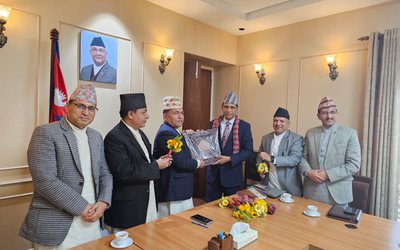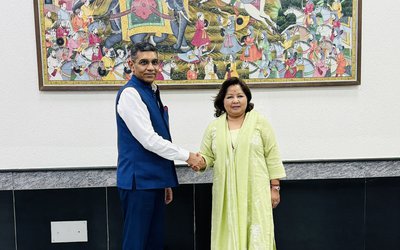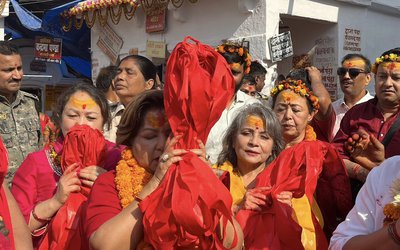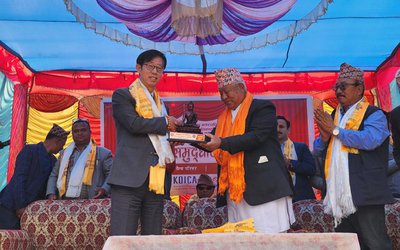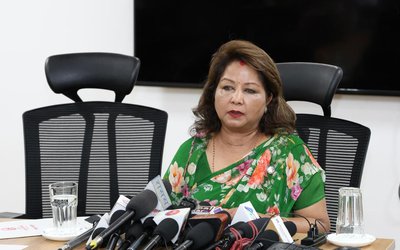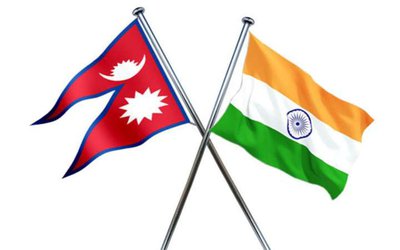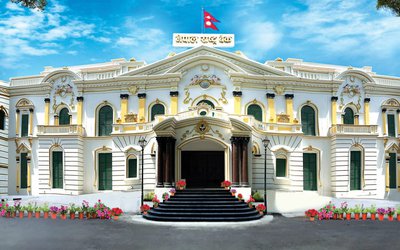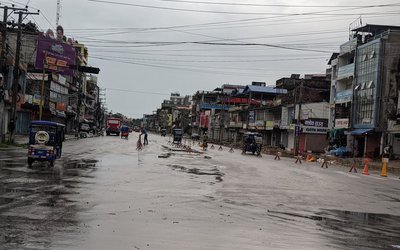
As the number of incidents related to human trafficking grows, Nepal Police Headquarter and Crime Investigation Department have organized an international conference to discuss how to effectively combat the global human trafficking problem.
Inaugurated by chief justice Kalyan Shrestha, the three-day meet brought various participants from Nepal and abroad to discuss the international response to human trafficking.
According to an estimate, over 7000 girls and children are trafficked from Nepal.
“Trafficking in persons as a modern day slavery, a global scourge that needs the concerned agencies to make concerted efforts to combat it," said Chief Justice Kalyan Shrestha.
Despite its limited human resources, Nepal Police has been effectively handling human trafficking, preventing hundreds of girls and children trafficked. However, human trafficking continues to increase.
“Human trafficking is the second largest criminal industry after drug trafficking and is tainting the image of humanity. No country is immune to the criminal syndicates of human trafficking,” said chief justice Shrestha. “The door for justice should always remain open for the trafficking victims.”
As traffickers are more organized and more resourceful, there are more challenges for law enforcement agencies.
“Traffickers have become more organized, making it challenging for law enforcement agencies to combat human trafficking. Human trafficking is a global problem and should be tackled accordingly. A single country alone cannot protect women and girls from being trafficked,” said Deputy Prime Minister and Home Minister Bamdev Gautam.
Attending high-level officials from Nepal and other parts took up various national and international protocols, conventions and treaties and laws to prevent it as the crime of human trafficking has been growing as a global problem.
“Nepal Police will leave no stone unturned to bring the perpetrators to book and deliver justice to the victims. Human trafficking rings work in a coordinated system and governments should stand united to fight them,” said Inspector General of Police Upendra Kant Aryal.
Nepal’s laws regard trafficking in person as a serious crime and also a gross violation of human rights. The governments should focus on preventive measures and rescue and repatriation of the victims.
“Human trafficking has been emerging as a global challenge. The government is committed to extending all possible support to law enforcement agencies to combat the crime,” said Surya Prasad Silwal, secretary at the Ministry of Home Affairs.
AIGP Surendra Bahadur said there is the need to focus on cross-border cooperation, rescue of victims, networking and information sharing.
South Asia, with India at its centre, is the fastest-growing and second-largest region for human trafficking in the world, after Southeast Asia, according to the United Nations Office for Drugs and Crime (UNODC).
More than 150,000 people are known to be trafficked within South Asia every year, but the trade is underground and the real number is likely to be much higher.
Traffickers or "agents" often take advantage of poor communities, luring victims from villages with promises of good jobs and a better life in the cities.
But the reality is very different. Thousands of women and girls are trafficked in India alone, many of them from Nepal and Bangladesh, and sold into forced marriage or used for bonded work as prostitutes or maids. Some end up in Gulf nations.
As Nepal is operating as a transit point, not only as a source country for traffickers, there is the need for coordination and mutual support to deal with it from other countries also.
- ADB’S CHIEF ECONOMIST: Nepal Reduces Poverty
- Mar 11, 2025
- FM DR. DEUBA: A Successful Visit
- Mar 11, 2025
- MD GHISING: Target Of Personal Grudge
- Mar 09, 2025
- UPPER TRISHULI-1 HYDROPOWER: Supporting Community Development
- Feb 24, 2025
- ADB POWERING NEPAL: Five Decades Of Support
- Feb 24, 2025
